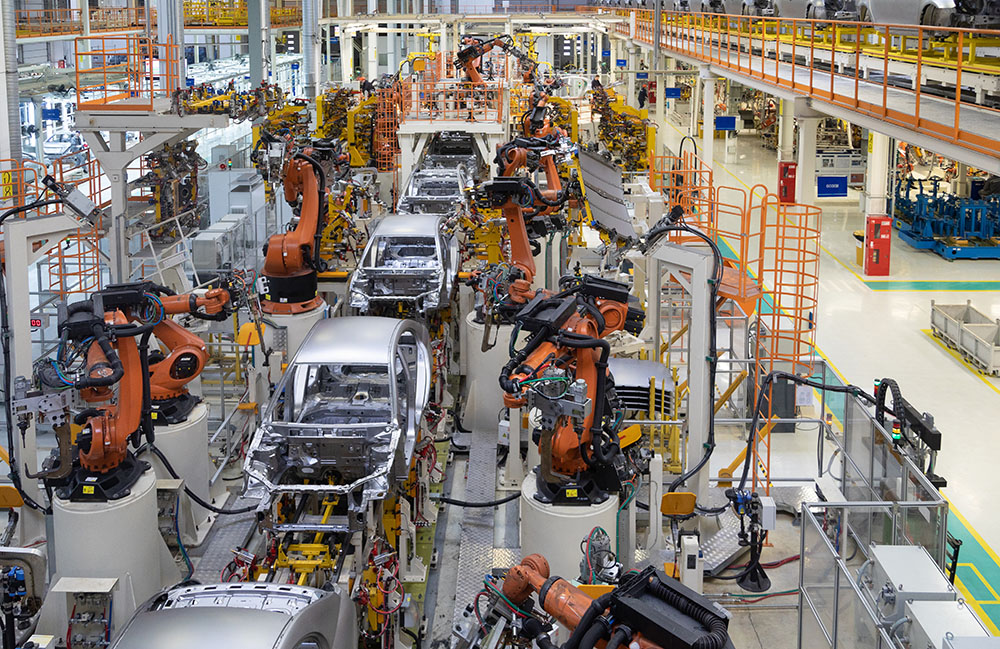
Historically, the automotive industry has been the biggest adopter of robotics. | Source: Adobe Stock
The Japanese automotive industry installed a total of about 13,000 industrial robots in 2024, according to the International Federation of Robotics, or IFR. This was an 11% increase in comparison with the previous year and the highest level recorded since 2020.
“Japan is the world’s predominant robot manufacturing country, representing 38% of global robot production,” stated Takayuki Ito, the president of the Frankfurt, Germany-based IFR.
“In terms of factory automation, Japan’s automotive industry ranked fourth worldwide, with a robot density of 1,531 robots per 10,000 employees in 2023,” he said. “This is ahead of the United States and Germany, only behind Slovenia, Korea, and Switzerland.”
Japan’s automotive industry restructures
The Japanese automotive industry is currently undergoing a restructuring process in order to adapt to alternative powertrains, noted the IFR. Most car manufacturers intend to expand their range of battery and fuel cell electric vehicles, it said.
In addition, automakers in Japan are developing hydrogen-fueled combustion engines.
This diversified portfolio will require the appropriate production technology. Car manufacturers represent approximately 25% of all robot installations on an annual basis in Japan.
The electrical and electronics industry is the only sector that installs more robots. Its installations reached about 14,000 industrial robots in 2024, which reflects a 5% decrease, said the IFR.
“The use of robotics not only characterizes modern industrial workplaces in Japan, but also contributes to the development in everyday areas of application,” Takayuki Ito said.
Global automakers still investing in automation
The IFR’s preliminary reports have found rising robotics sales from the automotive industry around the globe. In Europe, investments in automation remain high. The total number of industrial robots installed reached 23,000 in 2024, which is the second-best result in five years, said the organization.
At a global level, Europe’s car manufacturing is highly automated, the IFR said. Six countries on the continent were among the top 10 in the world’s robot density ranking for the automotive industry in 2023. Switzerland was in first place, with a ratio of 3,876 robots to 10,000 factory workers.
Earlier this year, the IFR reported that U.S. automakers have also been investing more in automation. It said total installations of industrial robots in the automotive industry increased by 10.7%, reaching 13,700 units in 2024.
However, while the U.S. is installing more robots, it isn’t producing most of them. The majority of these robots come from overseas. Globally, 70% of installations are produced by four countries: Japan, China, Germany, and South Korea, the IFR said.
In Asia, China’s national robotics strategy has led its manufacturing industry to install a total of about 280,000 units per year between 2021 and 2023. In 10 years, the country‘s global share of industrial robot installations has risen from around one-fifth to more than half of the world’s total demand, the IFR said.
In addition, robotics and automation are penetrating all levels of Chinese production. For example, the country has a high robot density of 470 robots per 10,000 employees in manufacturing, the third highest in the world, surpassing Germany and Japan in 2023.
The post Japanese automotive industry hits five year high in automation appeared first on The Robot Report.


